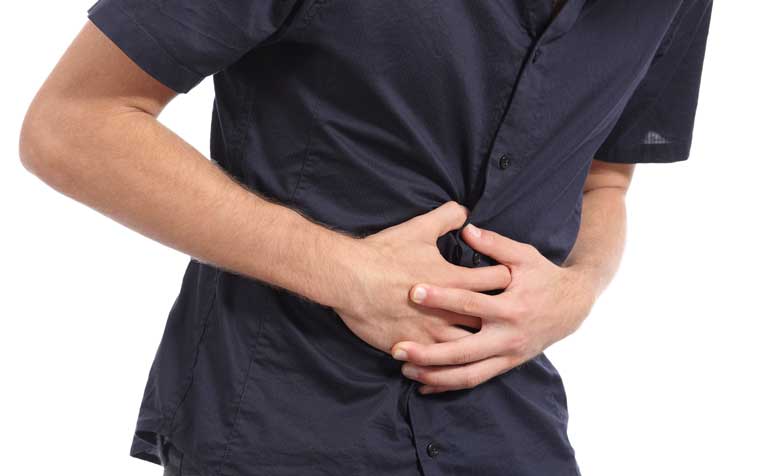
Gastric pain can be due to irregular meals and a stressful lifestyle.
Gastric pain: When do you need to see the doctor?
Gastric pain is not uncommon in Singapore, a country where many lead stressful lives and have irregular meals. But what exactly is gastric pain and when should you visit your doctor?
“Gastric pain is commonly used to describe pain or discomfort in the upper abdomen. Other symptoms typically include heartburn, bloating, belching and nausea,” say doctors from the Department of Gastroenterology & Hepatology, Singapore General Hospital (SGH), a member of the SingHealth group.
Gastric pain is sometimes called non-ulcer dyspepsia
When a patient presents with stomach or gastric pain, doctors will first try to rule out organic causes such as ulcers, inflammation and cancer. If tests come back normal and no organic cause can be found, the gastric pain is termed non-ulcer dyspepsia.
"Non-ulcer dyspepsia, also known as functional dyspepsia, actually forms the majority of cases of gastric pain", say our doctors. The word dyspepsia itself refers to the presence of persistent or recurrent abdominal pain or discomfort centred in the upper abdomen.
Organic causes of gastric pain
While non-ulcer dyspepsia has no clear cause, doctors suspect a link with stress. In a minority of cases, tests can reveal the cause of the gastric pain to be one of the following:
-
Dyspepsia (Peptic ulcer disease): A defect in the innermost layer of the stomach or duodenum wall (where the small intestine connects to the stomach).
Most peptic ulcers are due to Helicobacter pylori (H. pylori) infection, as well as to the use of non-steroidal anti-inflammatory drugs (NSAIDs) such as aspirin and other painkillers.
H. pylori infection can be ruled out by a blood test, urea breath test, stool test or by tests done during endoscopy.
-
Gastro-oesophageal reflux disease (GERD): A chronic condition where stomach acid or bile flows back into your food pipe (oesophagus), irritating its lining.
To rule out GERD, your doctor may recommend an endoscopy. In this exam, a thin tube containing a tiny camera is passed through the mouth to examine the oesophagus, stomach and duodenum.
-
Gallstone disease:
Gallstones usually do not cause any signs or symptoms. However, inflammation of the gallbladder or blockage of the bile duct may lead to severe abdomen pain. Occasionally, gallstones on their own may cause pain without significant inflammation of the gallbladder or blockage of the bile duct.
Ultrasound scans and CT scans can help to reveal the presence of gallstones.
-
Cancer:
Stomach cancer,
pancreatic cancer or
liver cancer can also cause abdominal pain.
Cancer can be ruled out during endoscopy, as small tissue samples can be obtained and checked for cancerous cells. Alternatively, a barium meal x-ray examination can be recommended.
When to visit a doctor for gastric pain
If you suffer from gastric pain, you should see a doctor immediately if you:
Vomit blood or pass out black stools (indicating the presence of blood).
Persistently vomit after eating.
Suffer from unexplained weight loss.
Experience severe, excruciating upper tummy pain.
Additionally, you should consult a doctor if your symptoms have appeared recently. In most cases, gastric pain symptoms are long-standing, sometimes going back decades. Such symptoms are then less likely to indicate a serious health problem.
Read on to learn about treatment for gastric pain and tips to prevent attacks.
Ref: O17
Check out other articles on digestive health:
Fatty Liver Disease: How to Reverse It
Gallstones and Gallbladder Disease: Risk Factors and Prevention
Stomach Cancer: What are the Early Signs?



















 Get it on Google Play
Get it on Google Play